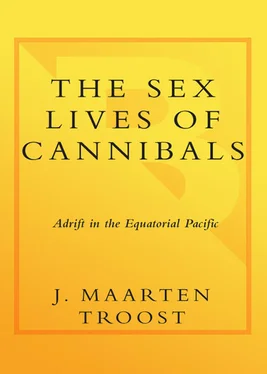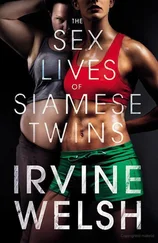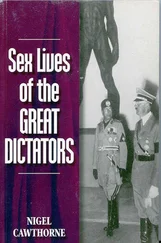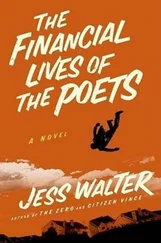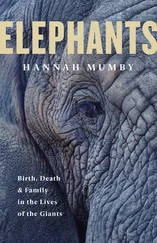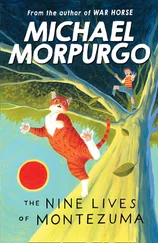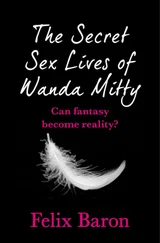J. Maarten Troost - The Sex Lives of Cannibals
Здесь есть возможность читать онлайн «J. Maarten Troost - The Sex Lives of Cannibals» весь текст электронной книги совершенно бесплатно (целиком полную версию без сокращений). В некоторых случаях можно слушать аудио, скачать через торрент в формате fb2 и присутствует краткое содержание. Город: New York, Год выпуска: 2004, ISBN: 2004, Издательство: Broadway Books, Жанр: Биографии и Мемуары, Путешествия и география, Юмористическая проза, на английском языке. Описание произведения, (предисловие) а так же отзывы посетителей доступны на портале библиотеки ЛибКат.
- Название:The Sex Lives of Cannibals
- Автор:
- Издательство:Broadway Books
- Жанр:
- Год:2004
- Город:New York
- ISBN:978-0-7679-1895-4
- Рейтинг книги:5 / 5. Голосов: 1
-
Избранное:Добавить в избранное
- Отзывы:
-
Ваша оценка:
- 100
- 1
- 2
- 3
- 4
- 5
The Sex Lives of Cannibals: краткое содержание, описание и аннотация
Предлагаем к чтению аннотацию, описание, краткое содержание или предисловие (зависит от того, что написал сам автор книги «The Sex Lives of Cannibals»). Если вы не нашли необходимую информацию о книге — напишите в комментариях, мы постараемся отыскать её.
The Sex Lives of Cannibals — читать онлайн бесплатно полную книгу (весь текст) целиком
Ниже представлен текст книги, разбитый по страницам. Система сохранения места последней прочитанной страницы, позволяет с удобством читать онлайн бесплатно книгу «The Sex Lives of Cannibals», без необходимости каждый раз заново искать на чём Вы остановились. Поставьте закладку, и сможете в любой момент перейти на страницу, на которой закончили чтение.
Интервал:
Закладка:
It was often suggested to me by concerned family members that I should get my foot in the door with a midsized newspaper. I rejected this out of hand. I was familiar enough with journalism to know that were I to cover a news-type event I would rapidly lose all my journalistic-like composure, discard all my faculties of reason, and descend into a stifling murk of uncertainty and fear. I knew this because when I lived in Prague I had been an actual journalist. An English-language weekly newspaper had generously agreed to assign me to real stories based on the masterpiece that was my analysis of the Saudi oil industry, a twenty-page, richly textured, subtly nuanced, carefully crafted display of plagiarism, which earned me a B+ during my junior year of college. These, obviously, were the glory years of the whole westerners-in-Prague era, shortly after the demise of that little experiment in social engineering known as communism, when hundreds, perhaps thousands, of Americans, Canadians, Australians, and other purveyors of Western ways descended upon the most beautiful city in the world and pretty much did anything they wanted to do. It was great.
My mother is Czech and as a consequence I like to think that I was not merely a seeker of the transcendently hip when I lived in Prague. I was born in the Netherlands and as a child I often traveled to Czechoslovakia to visit my grandfather, who lived in an apartment in Prague overlooking the Vltava River. The faint whiff of burning coal is enough to bring back the indolent river swans, the salty bread and sweet yogurt, the smoke-drenched rooms, my grandfather’s beer glass, and the long wanderings through soot-stained passageways in a city that for a time spoke to me only of the deeds of kings. When I was seven, just after my parents divorced, my mother had my younger sister and me baptized in a small church in South Bohemia. Seven, of course, is the age when the brain is at its most fecund, when every image and experience offers portent, and so when Prague’s many statues of beheaded saints, detongued martyrs, and gargoyles were all helpfully brought to my attention as being relevant in some way to my life and death, I pretty much stopped sleeping for a year, fearing the nightly intrusion of alarming images, particularly of a slender bearded man being put to death in a highly creative and terrifying fashion just so I could go to heaven one day. To further the potency of my imagination, Prague in the 1970s was experiencing what was quaintly called Normalization, which is Soviet-speak for the dread that occurs when the babicka next door is an informer, which leads to a somber and fearful state of being that is far more efficient in quelling deviation from the right and true path than the intimidation offered by Soviet soldiers.
That world, of course, was happily discarded, and with Vaclav Havel installed as a kind of philosopher-king in the great, looming castle above Prague, I moved to the city shortly after college, fortunately no longer palpitating at the sight of saintly relics, but aware that this city of spires and pubs had a way of getting inside you. There was something ephemeral about Prague in the early 1990s, and it is the only city I have known to truly have a spirit. I began writing for The Prague Post , or rather they used my name above articles that bore no semblance to the prose I submitted for their consideration. “A story is like a car trip,” tutored my editor. “You, the writer, are the car that takes readers from point A to B to C without leaving the road.” As careful readers may have already surmised, I favor the ditches of digression.
During my foray into journalism, I never really felt I knew enough about a particular newsworthy event to provide written coverage of the newsworthy event. The written word presented in a journalistic fashion is regarded by most as the indisputable truth and this just left me dumbfounded with a fear of being wrong. I am a big believer in the Law of Unintended Consequences and I imagined that my failure to capture every nuance and subtlety of a newsworthy event would lead to the collapse of governments, economic crises, and lots of hardship for the people of Eastern and Central Europe. Never mind that my stories usually appeared on page C8, and that they were written in a language few people in the region understood, and that my readership probably never exceeded four, and that those four people were, presumably, the four people I interviewed, via a translator, who would suggest—not unkindly—the questions I should be asking. Fortunately, I was both keenly interested in events in the region—march of history and all that—as well as highly opinionated, and so I began writing for the newspaper’s opinion page, providing comment on the European Union’s policies toward their Eastern brethren, the historical roots of the severing of Czechoslovakia, the West’s dithering over Bosnia, Havel’s conception of democracy, and other topics I was not remotely qualified to comment upon. This I found to my liking. It is a remarkably easy thing to do, pointing out the faults of others and suggesting remedies or courses of action in an argumentative and pedantic sort of way, and I am still amazed that there are many people in the American media who are paid very big money to do this.
Churning out 750 words on what American policy toward Slovakia should be rarely takes more than an afternoon, and so I spent a lot of time falling in love and traveling and living the life I wanted to live. I saw things that both pleased and horrified me, and in comparison America seemed a sedate and frivolous place. I traveled wherever my meager funds allowed and saw history unfold. On a trip to Poland I had the train connection from hell—arrive at Frankfurt an der Oder at 1:30 A.M., depart for Warsaw at 5:45 A.M.—and while curled asleep on the train platform I was suddenly awakened by the Russian Army. Thousands of Russian soldiers passed through the station on their way from Eastern Germany, which was once again one with Western Germany, on their way back to Russia, which I thought was just the niftiest piece of history I had ever seen. A few months later, I too boarded a train for Russia, where I had a very exciting encounter with a bear on a bridge in St. Petersburg, and where I discovered that everything one has read about vodka consumption in that part of the world is true, and now that I think about it, the bear on the bridge was probably the only sober creature I encountered during my three weeks in Russia. I took a ferry to Dubrovnik, on the stunningly beautiful Dalmatian coast, where my friends and I were accosted by a Croatian soldier who charged out of a bar upon our passing, exclaimed “Tourists!” and when we nodded, said “You are the first since the war,” and then hustled us into the bar, where we spent the hours after curfew descending into a sublime melancholy on a verandah overlooking the shell-scarred old town while listening to the staccato crackling of gunfire. In Turkey, I slipped while rock climbing above a waterfall and fractured three vertebrae, which really hurt, though I did find great happiness when, lying crumpled in a gorge, I told my toes to move and they did. I also went to Bosnia-Herzegovina. I obtained press credentials through The Prague Post and soon found myself in Mostar, where I was deeply, deeply in over my head and utterly dependent upon the kindness of English mercenaries, and I learned there that the distance between civilization and savagery is exceedingly small and this has scared me ever since.
The point of this little excursion into events and happenings that have nothing whatsoever to do with the South Pacific is simply that I had grown accustomed to life being interesting and adventure ridden and, rather childishly, I refused to believe that this must necessarily come to an end and that the rest of my life should be a sort of penance for all the reckless, irresponsible, and immensely fun things I’d done before. Being a data-entry clerk, even though I was very, very good, just didn’t compare to being an incompetent war correspondent. In Washington, I never quite knew what my ambitions were. I sensed that I should move on from waiting tables and housepainting and temping and clerking, but the idea of working in an office and doing office-type work in a committed fashion seemed like a quiet little death to me. Fortunately, with no prodding from me, Sylvia was also inclined to make a few changes. She had begun working for a nongovernmental organization that focused on international development. Suffice it to say that the Washington end of such work can be a mite dispiriting and Sylvia soon began to yearn for the field, which is international development–speak for Third World hellhole. And so we both began applying for jobs in the most miserable places on Earth.
Читать дальшеИнтервал:
Закладка:
Похожие книги на «The Sex Lives of Cannibals»
Представляем Вашему вниманию похожие книги на «The Sex Lives of Cannibals» списком для выбора. Мы отобрали схожую по названию и смыслу литературу в надежде предоставить читателям больше вариантов отыскать новые, интересные, ещё непрочитанные произведения.
Обсуждение, отзывы о книге «The Sex Lives of Cannibals» и просто собственные мнения читателей. Оставьте ваши комментарии, напишите, что Вы думаете о произведении, его смысле или главных героях. Укажите что конкретно понравилось, а что нет, и почему Вы так считаете.
